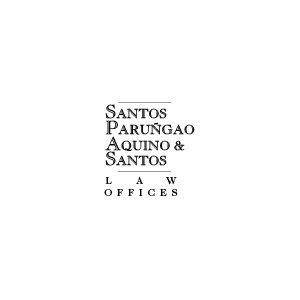Best Child Abuse Lawyers in Pasig
Share your needs with us, get contacted by law firms.
Free. Takes 2 min.
Free Guide to Hiring a Family Lawyer
List of the best lawyers in Pasig, Philippines
About Child Abuse Law in Pasig, Philippines
Child Abuse Law in the Philippines, particularly in Pasig City, is governed by the Republic Act No. 7610, also known as the Special Protection of Children Against Abuse, Exploitation, and Discrimination Act. This law seeks to protect children from all forms of exploitation and cruelty, including physical, sexual, and emotional abuse. Local government units like Pasig City enforce this law with strict compliance, working with local social welfare departments and law enforcement for case invigilation, prevention, and aiding abused children.
Why You May Need a Lawyer
Legal help can be crucial in dealing with child abuse cases, as they often involve complex procedures and necessitate expert advocacy. Lawyers can aid in understanding the intricacies of the child abuse law, gathering and preparing appropriate evidence, and representing the case in court. You may require legal help if you are a victim seeking justice, a guardian suing on behalf of a minor, or even a falsely-accused individual seeking defense.
Local Laws Overview
The Republic Act No. 7610 considers child labor, child trafficking, child prostitution, and other forms of neglect, cruelty, and physical and emotional mishandling as child abuse. The law mandates heavy penalties for the perpetrators, including imprisonment and fines. Local ordinances in Pasig supplement the national law, focusing on the protection and rehabilitation of abused children, while also envisaging the prompt reporting and efficient handling of such cases.
Frequently Asked Questions
What constitutes child abuse in Pasig, Philippines?
Any form of physical, sexual, emotional harm, or negligence towards a child, either by action or inaction, is considered child abuse in Pasig, and across the Philippines. This includes child labor, trafficking and imprisonment, sexual exploitation, verbal assault, and mental damage.
Who can report child abuse?
Anyone who witnesses or suspects child abuse, including but not limited to teachers, doctors, neighbors, and family members, can and should report it to local authorities or child protection services.
What happens once a report of child abuse is made?
Once a report is made, a social worker or police officer investigates the report. If the child's safety is at risk, the child may be temporarily placed in a safer environment while the case is being investigated.
What are the penalties for child abuse?
The penalties range from imprisonment to fines, depending on the severity and nature of the abuse. The courts decide the penalties based on the evidence produced and the level of damage caused to the child.
Can a child abuse case be filed anonymously?
Yes, a child abuse case can be filed anonymously. The legal and social system prioritizes the child's safety and privacy. However, complete details of the incident will help in a thorough investigation.
Additional Resources
Pasig City Social Welfare and Development (CSWD) is the local government department responsible for child welfare. They can provide support and counsel for cases of child abuse. At the national level, the Department of Social Welfare and Development (DSWD), Child Protection Unit (CPU), and Bantay Bata 163 are dedicated resources for combating child abuse.
Next Steps
If you or a child you know is being subjected to abuse, immediately inform the local authorities, such as the police, Barangay officials, or child protective services. Hire a lawyer experienced in Child Abuse Law to guide you through the legal proceedings. Your lawyer will help you gather the necessary evidence and represent you effectively in court. Remember, it's crucial to act quickly to ensure the safety of the child and prevent future abuse.
Lawzana helps you find the best lawyers and law firms in Pasig through a curated and pre-screened list of qualified legal professionals. Our platform offers rankings and detailed profiles of attorneys and law firms, allowing you to compare based on practice areas, including Child Abuse, experience, and client feedback.
Each profile includes a description of the firm's areas of practice, client reviews, team members and partners, year of establishment, spoken languages, office locations, contact information, social media presence, and any published articles or resources. Most firms on our platform speak English and are experienced in both local and international legal matters.
Get a quote from top-rated law firms in Pasig, Philippines — quickly, securely, and without unnecessary hassle.
Disclaimer:
The information provided on this page is for general informational purposes only and does not constitute legal advice. While we strive to ensure the accuracy and relevance of the content, legal information may change over time, and interpretations of the law can vary. You should always consult with a qualified legal professional for advice specific to your situation.
We disclaim all liability for actions taken or not taken based on the content of this page. If you believe any information is incorrect or outdated, please contact us, and we will review and update it where appropriate.










